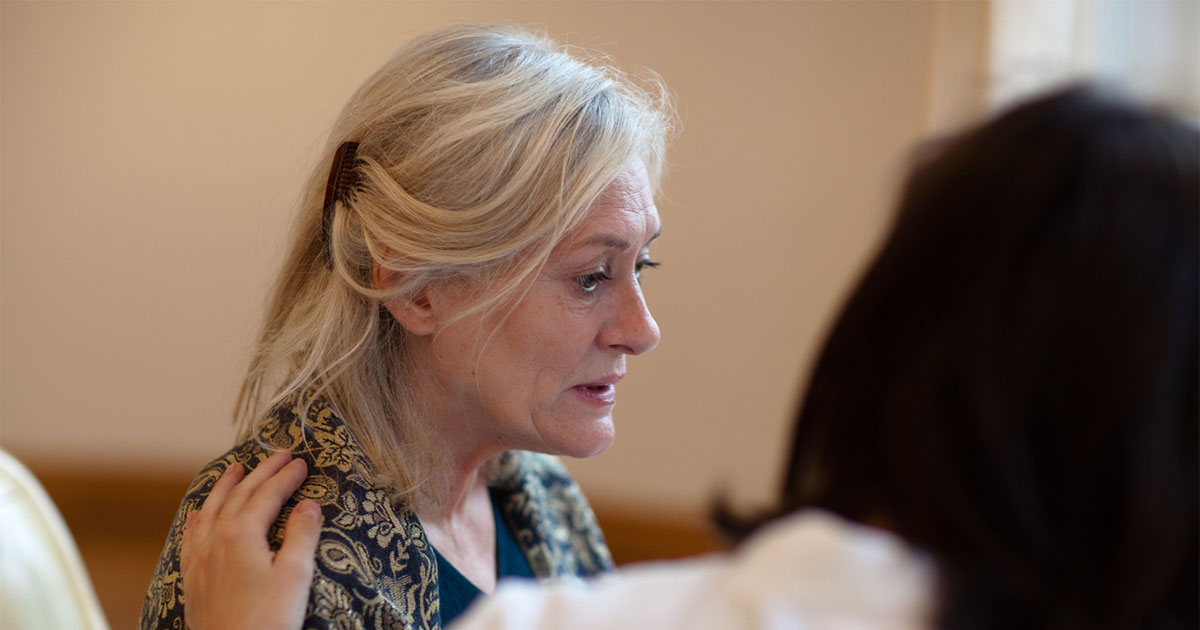Jane Diggle*
Jane qualified with a BSc (Hons) in Nursing in 1990 (Leeds) and has worked as a Practice Nurse in the same practice for over 20 years. While she retains a generalist role, her special interest is in diabetes, for which she is clinical lead within her practice. She is an independent prescriber and has gained MSc modules in Insulin Management and New & Advanced Therapies from Leicester University.
She is a member of the editorial board for the Journal of Diabetes Nursing and Associate Editor-in-Chief for Diabetes & Primary Care. She is a member of the Forum for Injection Technique (FIT), which strives to encourage best practice in injection technique, and an Associate Member of TREND-UK.
She has had a number of articles published, was instrumental in developing and writing Six Steps to Insulin Safety (a free e-learning module launched in 2016 and available at www.cpd.diabetesonthenet.com) and regularly delivers presentations on aspects of managing diabetes.
Practice nurses play a key role in the delivery of diabetes care and are increasingly responsible for making independent and often complex management decisions. Jane was elected to the PCDS Committee in 2010 and is keen to continue in this role to further promote and support the valuable contribution that GPs and practice nurses make to diabetes care in the community and encourage the sharing of knowledge, skills and expertise across the disciplines.
Alia Gilani*
Ms Gilani is a Health Inequalities Pharmacist whose interests lie in ethnic inequalities and diabetes. She helped establish and run a bilingual medication review service in NHS Glasgow in 2002, called MELTS (Minority Ethnic Long Term medicines Service), and operated it for a over a decade. This was an open referral medication review service, which allowed referrals to be received from both primary and secondary care. She has received several awards for her work in which the service has been recognised locally and nationally. She was the Chair of the NHS Glasgow Diabetes Ethnicity and Inequalities Group.
She has also been running outreach clinics for South Asian people with diabetes for over a decade in various locations (e.g. mosques, elderly centres). She is a member of the diabetes working group, the regional lead and CEO for the South Asian Health Foundation (SAHF) Scotland. She also became the first pharmacist on the PCDS committee.
She has hosted several diabetes awareness days in community venues promoting SAHF and NHS services. She is on the editorial board for and contributes to Diabetes & Primary Care. She is involved in healthcare professionals’ education by delivering lectures both locally and nationally on topics from managing diabetes during Ramadan to tackling health and ethnic inequalities. She was involved in delivering a lecture at the first joint Royal College of General Practitioners and Royal Pharmaceutical Society diabetes conference.
Lesley Hamilton**
Lesley qualified as a State Registered Dietitian in 1990 after completing a BSc (Hons) degree in Nutrition and Dietetics in Aberdeen. She developed an interest in diabetes while working at Causeway Trust and took up a Diabetes Dietitian Specialist post at Western Trust in 2004, working as Team Lead for the, then, newly established Community Diabetes Support Team. Lesley is currently the Diabetes Network Manager for the Western Trust and has strong links with GP practices and specialist diabetes teams establishing Integrated Care Pathways in the local trust area. She has been involved recently in regional Diabetes Network group in Northern Ireland and is a Diabetes UK clinical champion. Lesley continues to input to diabetes clinics and structured patient education programmes. She would value the opportunity to continue to work with PCDS, both locally and nationally, to support the needs of the multidisciplinary team.
Naresh Kanumilli*
Naresh is a GP in a large practice in South Manchester and has been the GPwSI in diabetes Manchester for over 12 years, and a Diabetes UK Clinical Champion of the North West. He is also the Long-Term Conditions Lead for South Manchester CCG and has been involved in the development of services and protocols to improve the outcomes for people with diabetes.
In his current role as the strategic clinical network lead, he investigates avenues to improve the education participation and improve outcomes for people with diabetes across the network, particularly in improving the delivery and uptake of structured education, by looking at the barriers and also innovative ways of providing education. In his role as the research lead, he promotes research within primary care and awareness among patients about the importance and benefits of taking part in research. As a PCDS committee member, Naresh is committed to ensuring that primary care is at the forefront in the management of the person with diabetes. He feels that that it is important to encourage more GPs and practice nurses to take an interest in diabetes care and also to promote best practice. He believes that the PCDS has a role in ensuring that healthcare professionals are provided the tools to reduce variation and improve outcomes for the person with diabetes. To enable this, the PCDS need to collaborate more with the various stakeholders and ensure that the best interests of the patient are at the centre of any pathways and service developments. His motto for people with diabetes is “No Medication without Education”.
Stephen Lawrence*
Stephen is a Primary Care Clinical Lead in Chatham. He graduated from Leeds University Medical School in 1987. His interest in metabolic medicine was awakened when he completed a BSc (Hons) degree in Chemical Pathology during his intercalated year. He has previously worked as a Medical Advisor for Prisons at the Department of Health, where he participated in an award-winning study of diabetes in prison. His interests include the critical appraisal of evidence-based medicine, and diabetes commissioning and service development. He has presented to healthcare audiences throughout the UK and beyond.
In 2003, Dr Lawrence was instrumental in establishing an intermediate care GP with a Special Interest in Diabetes clinic in Medway in answer to the burgeoning burden of diabetes referrals to the local Medway Maritime Hospital. He has written articles on the evolving role of community-based diabetes care. He trains healthcare professionals wishing to advance to supplementary or independent prescribing status. In addition, he has served in a joint role of Primary Care Medical Advisor for Diabetes UK and Clinical Diabetes Lead for the Royal College of General Practitioners.
Joanne Lowe*
Joanne works as a Community Diabetes Nurse Specialist for the integrated care programme across South-east Dublin and County Wicklow. She trained as a nurse in Birmingham. Prior to her present role, she has worked in diabetes in a variety of settings: practice nurse, diabetes research, nurse advisor and secondary care. She graduated from Warwick University in 2012 with an MSc in Diabetes and is the current Secretary of the PCDS.
Jim McMorran**
Jim is a Coventry-based GP who has a specialist interest in diabetes and lipids. Since 2004 he has been undertaking a GPSI role in Coventry (now Coventry and Rugby Clinical Commissioning Group), where he has managed diabetes and lipid problems in an intermediate care clinic receiving referrals from local GPs and nurses. This clinic is a “problem”-based clinic where patients are reviewed regarding a diabetes or lipid problem and the problem is then addressed and the patients repatriated to primary care.
Jim is also the co-creator and Editor in Chief of GPnotebook (www.gpnotebook.co.uk), which is currently ranked as the most used reference resource by UK GPs in the consultation. This role means that he has to keep up to date with changes in clinical knowledge relevant to primary care and also write about (or edit) these changes in a form relevant to primary care. The production and development of GPnotebook is an onerous task for Jim, but also one which he (and the other authors) are very proud of.
In the last 12 months, Jim has also been appointed as GP Clinical Lead for community services for his Clinical Commissioning Group and also as a GP Adviser to the UK National Screening Committees and is working on issues relating to diabetes eye screening; in the latter role, he blogs for Public Health England about significant changes in screening and how they relate to primary care (www.phescreening.blog.gov.uk/author/dr-jim-mcmorran).
Outside his clinical work, Jim enjoys time with his family and is also an active sportsman, having competed at county and regional level at athletics and cross-country as a child and then achieving an Oxford Full Blue at university. He now enjoys playing sport with his children, as well as running and doing indoor gym competitions (for X-Training, see www.youtube.com/watch?v=w-oIMCU6o_U).
Richard Quigley*
Richard is a full-time GP in the south of Glasgow. His interest in diabetes began in 1988 when he established his practice’s diabetes clinic. He has postgraduate qualifications in diabetes and therapeutics and is on the editorial board of Diabetes & Primary Care. He has contributed many articles to diabetes journals, as well as lecturing on diabetes-related subjects at home and abroad. Current and past appointments include Primary Care Representative on the National Research Ethics Committee, a member of the SIGN 116 Therapy Update Group (Glycaemic Control) and the Scottish Diabetes Group, Greater Glasgow and Clyde MCN committee member (Diabetes), Diabetes UK committee member, as well as Scottish Representative and Treasurer on the PCDS Committee.





Jane Diggle examines the draft update to the NICE NG28 clinical guideline, plus new advice regarding the discontinuation of Levemir.
10 Sep 2025